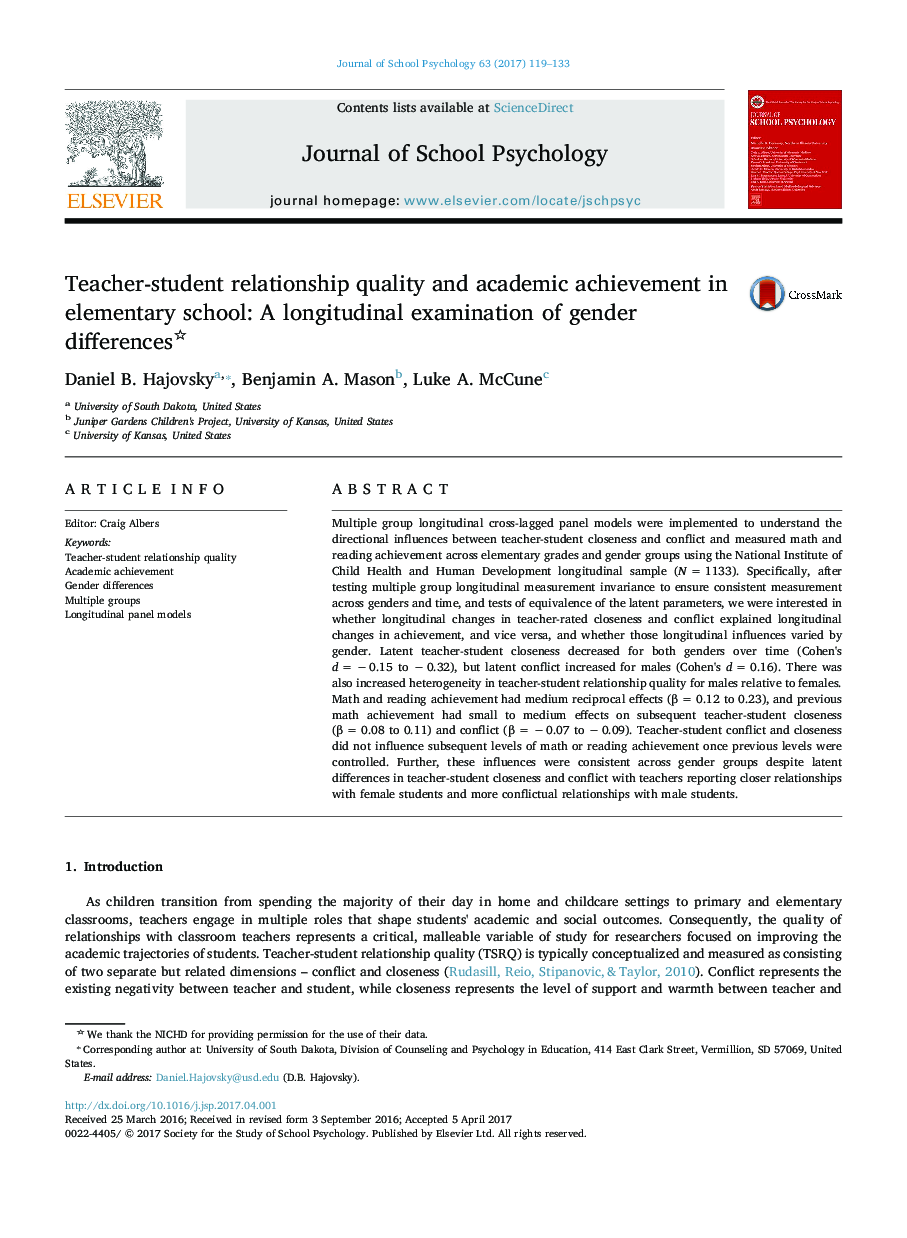| Article ID | Journal | Published Year | Pages | File Type |
|---|---|---|---|---|
| 4939792 | Journal of School Psychology | 2017 | 15 Pages |
Abstract
Multiple group longitudinal cross-lagged panel models were implemented to understand the directional influences between teacher-student closeness and conflict and measured math and reading achievement across elementary grades and gender groups using the National Institute of Child Health and Human Development longitudinal sample (N = 1133). Specifically, after testing multiple group longitudinal measurement invariance to ensure consistent measurement across genders and time, and tests of equivalence of the latent parameters, we were interested in whether longitudinal changes in teacher-rated closeness and conflict explained longitudinal changes in achievement, and vice versa, and whether those longitudinal influences varied by gender. Latent teacher-student closeness decreased for both genders over time (Cohen's d = â 0.15 to â 0.32), but latent conflict increased for males (Cohen's d = 0.16). There was also increased heterogeneity in teacher-student relationship quality for males relative to females. Math and reading achievement had medium reciprocal effects (β = 0.12 to 0.23), and previous math achievement had small to medium effects on subsequent teacher-student closeness (β = 0.08 to 0.11) and conflict (β = â 0.07 to â 0.09). Teacher-student conflict and closeness did not influence subsequent levels of math or reading achievement once previous levels were controlled. Further, these influences were consistent across gender groups despite latent differences in teacher-student closeness and conflict with teachers reporting closer relationships with female students and more conflictual relationships with male students.
Related Topics
Social Sciences and Humanities
Psychology
Applied Psychology
Authors
Daniel B. Hajovsky, Benjamin A. Mason, Luke A. McCune,
